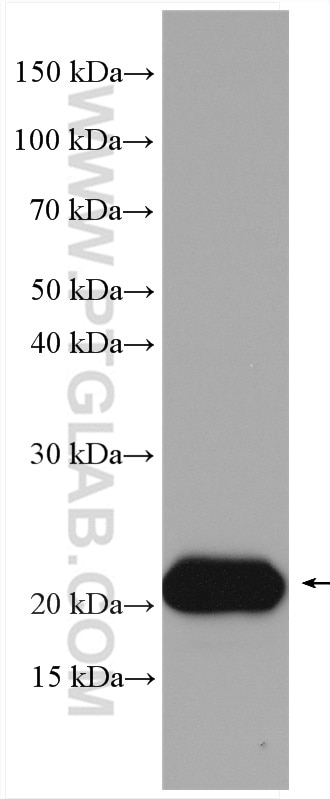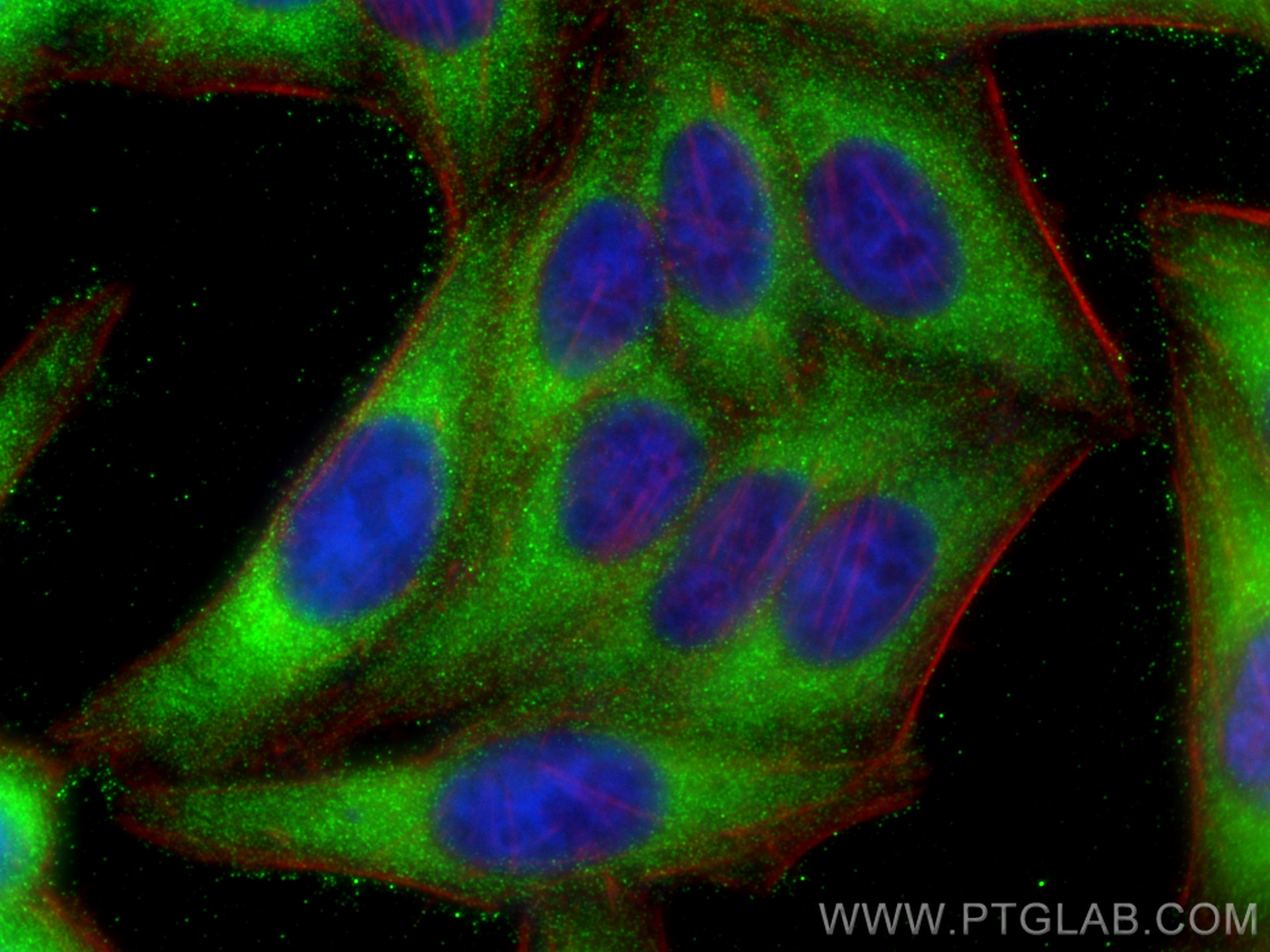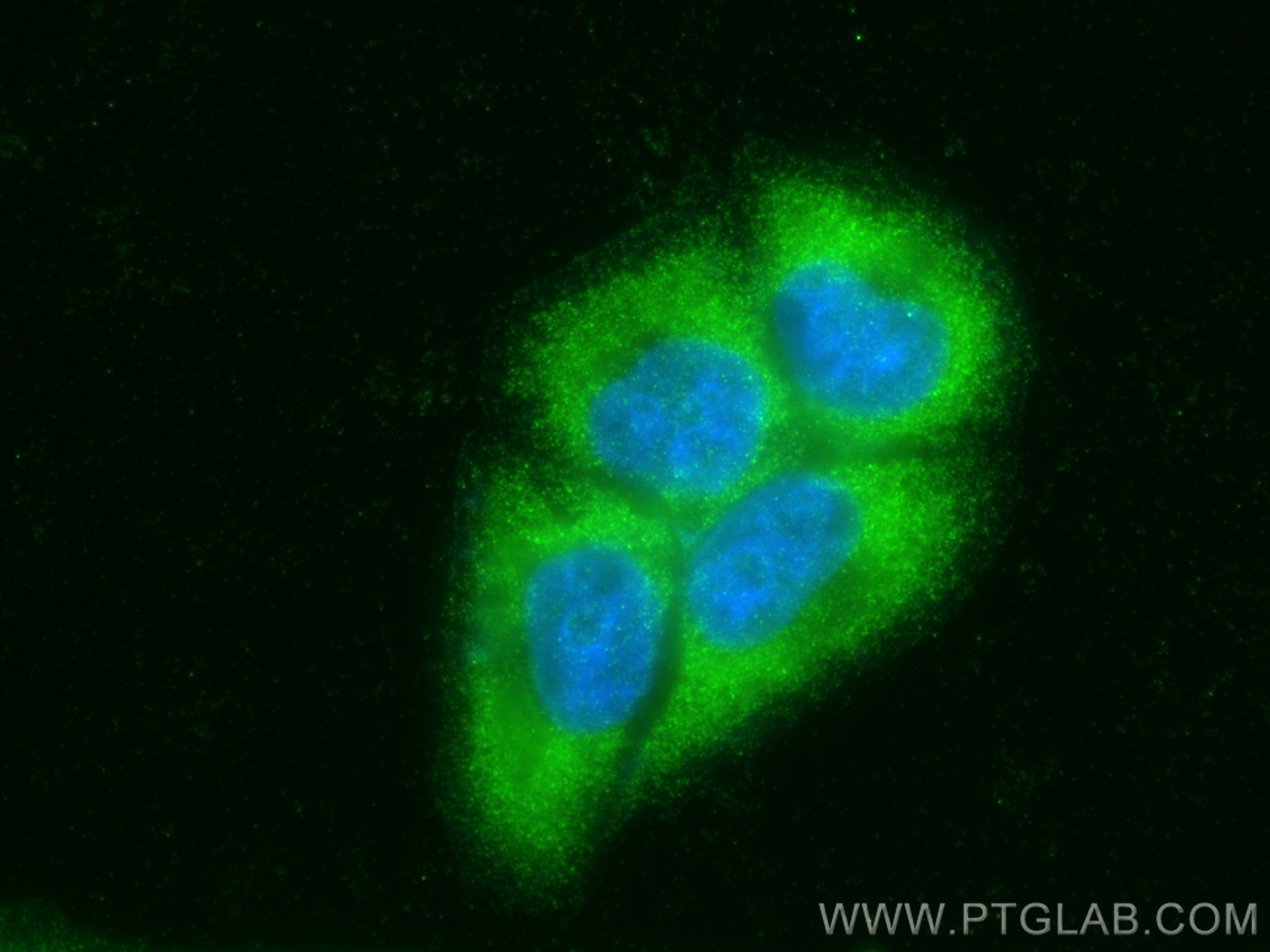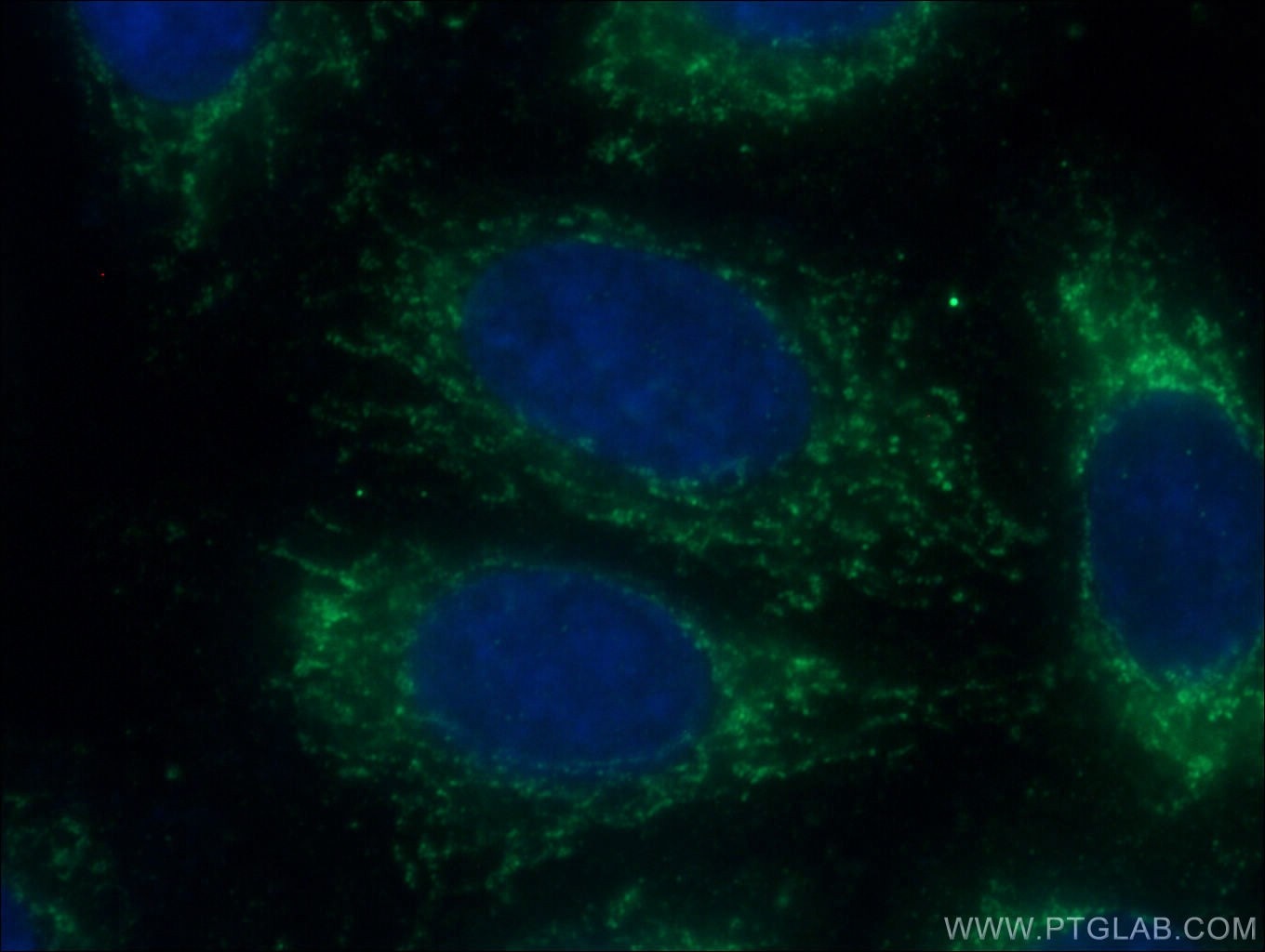Anticorps Polyclonal de lapin anti-IFN-beta
IFN-beta Polyclonal Antibody for WB, IF/ICC, ELISA
Hôte / Isotype
Lapin / IgG
Réactivité testée
Humain et plus (1)
Applications
WB, IHC, IF/ICC, ELISA
Conjugaison
Non conjugué
N° de cat : 27506-1-AP
Synonymes
Galerie de données de validation
Applications testées
| Résultats positifs en WB | Protéine recombinante, |
| Résultats positifs en IF/ICC | cellules HepG2, cellules L02 |
Dilution recommandée
| Application | Dilution |
|---|---|
| Western Blot (WB) | WB : 1:5000-1:50000 |
| Immunofluorescence (IF)/ICC | IF/ICC : 1:200-1:800 |
| It is recommended that this reagent should be titrated in each testing system to obtain optimal results. | |
| Sample-dependent, check data in validation data gallery | |
Applications publiées
| WB | See 12 publications below |
| IHC | See 7 publications below |
| IF | See 3 publications below |
Informations sur le produit
27506-1-AP cible IFN-beta dans les applications de WB, IHC, IF/ICC, ELISA et montre une réactivité avec des échantillons Humain
| Réactivité | Humain |
| Réactivité citée | Humain, souris |
| Hôte / Isotype | Lapin / IgG |
| Clonalité | Polyclonal |
| Type | Anticorps |
| Immunogène | IFN-beta Protéine recombinante Ag26326 |
| Nom complet | IFN beta |
| Masse moléculaire calculée | 187 aa, 22 kDa |
| Numéro d’acquisition GenBank | BC069314 |
| Symbole du gène | IFN beta1 |
| Identification du gène (NCBI) | 3456 |
| Conjugaison | Non conjugué |
| Forme | Liquide |
| Méthode de purification | Purification par affinité contre l'antigène |
| Tampon de stockage | PBS with 0.02% sodium azide and 50% glycerol |
| Conditions de stockage | Stocker à -20°C. Stable pendant un an après l'expédition. L'aliquotage n'est pas nécessaire pour le stockage à -20oC Les 20ul contiennent 0,1% de BSA. |
Informations générales
Interferon-beta (IFN-β) is a type I interferon, which is a group of signaling proteins made and released by host cells in response to the presence of several viruses, including double-stranded RNA produced by many viruses. IFN-β is a single protein species and is molecularly related to IFN-α subtypes, although it is antigenically distinct from them. It is mainly produced by fibroblasts and plays a crucial role in the innate immune response against viruses. IFN-β can inhibit viral replication by interfering with the virus's RNA or DNA, thus suppressing viral growth. It also enhances the cytotoxic activity of natural killer (NK) cells and promotes the expression of major histocompatibility complex (MHC) class I molecules.
Protocole
| Product Specific Protocols | |
|---|---|
| WB protocol for IFN-beta antibody 27506-1-AP | Download protocol |
| IF protocol for IFN-beta antibody 27506-1-AP | Download protocol |
| Standard Protocols | |
|---|---|
| Click here to view our Standard Protocols |
Publications
| Species | Application | Title |
|---|---|---|
J Mater Chem B Magnetic hyperthermia induces effective and genuine immunogenic tumor cell death with respect to exogenous heating | ||
Int Immunopharmacol Polysaccharides from Platycodonis Radix ameliorated respiratory syncytial virus-induced epithelial cell apoptosis and inflammation through activation of miR-181a-mediated Hippo and SIRT1 pathways. | ||
Amino Acids Escherichia coli infection activates the production of IFN-α and IFN-β via the JAK1/STAT1/2 signaling pathway in lung cells. | ||
BMC Vet Res The role of IBV PL1pro in virus replication and suppression of host innate immune responses | ||
Cell Death Dis Intracellular virus sensor MDA5 exacerbates vitiligo by inducing the secretion of chemokines in keratinocytes under virus invasion. | ||





